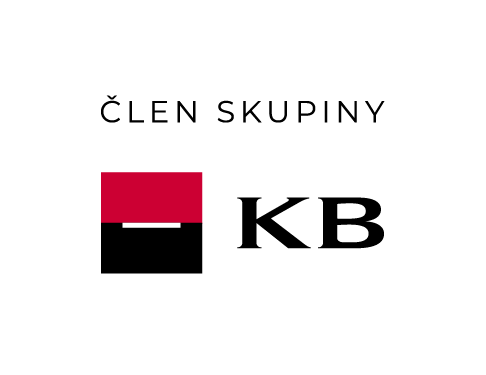05/30/2018

Resource Efficiency policies, SME services and software discussed in Prague - Enviros

The 3rd workshop of the European Resource Efficiency Knowledge Centre, titled “Technical assistance tools and public support schemes to exploit resource efficiency potential in SMEs”, took place in Prague on 22 May 2018 at the Czech Ministry of Industry and Trade (MIT), hosted by local organizers ENVIROS and the MIT. The event attracted 23 participants from nine European countries, representing business intermediaries and public bodies. Participants attended sessions on the European and national resource efficiency policy contexts, public support programmes, as well as effective tools in promoting resource efficiency within SMEs, and actively participated in discussions, sharing their knowledge and experience as stakeholders of the public and private sectors.
In the morning, the delegates were welcomed by Ms. Paola García, EASME, Mrs. Pavlína Kulhánková, director of the industrial ecology department of the Ministry of Industry and Trade, and Mr. Jan Pavlík, director of ENVIROS environmental division.
Mr. Agis Evrigenis, from Technopolis Group, and director of the EREK centre, opened the morning agenda which focused on the European policy context and the drivers implemented in order to trigger resource efficiency in companies. He introduced the EREK platform, its history, and outlined its mission and goals for the next year: building capacity in resource efficiency, expanding the EREK network, and helping SMEs become more resource efficient. He highlighted the vision of the EREK, as a reference point for companies and business intermediaries on the latest development in resource efficiency, support tools, measures, technologies, and financing schemes in Europe. Participants expressed their interest in the centre and discussed the potentials that lies in further connecting EREK to national bodies, and the future collaborations that could take place on the topic. Participants mentioned that they would welcome seeing the EREK platform become the focal point of local information and initiatives, which, despite the online platform being available in several EU languages, would require ownership of the centre in each respective language.
Following this session, Mr. Petr Kalaš, vice-president of the Czech Business Council for Sustainable Development introduced the Czech resource efficiency strategy, which has a stronger focus on energy efficiency. He summarized the institutional framework for sustainability put in place at government and business level, and explained the main objectives of the World Business Council for Sustainable Development. During the discussion that followed, the delegates showed interest in the participation of Czech towns in the Covenant of Mayors, and inquired about its organisation.
Mrs. Pavlína Kulhánková, head of the industrial ecology department of the Czech Ministry of Industry and Trade (MIT), gave a presentation on the support provided by Czech resource efficiency policies targeting industrial companies, especially related to material efficiency. She put forward the policy drivers and barriers that exist in the Czech Republic and introduced the main tasks of the MIT in the field of resource efficiency –, i.e. the promotion of green public procurement and the promotion of the use of secondary raw material.
The second block of the workshop consisted in the presentation of concrete tools and software for the identification of resource efficiency potential in SMEs. Three tools were introduced, with different impact levels:
- a complex diagnosis tool for the identification of resource efficiency potential in SMEs, presented by Mr. Vladimír Dobeš from EMPRESS;
- an energy efficiency software, presented by Mr. Pavel Sitný from ENVIROS;
- and a material flows cost accounting tool, presented by Mr. Michael Hauke from ifu hamburg.
All three introduced tools have plenty of existing applications all over Europe, and delegates discussed how to successfully promote such tools and notably how to convince SMEs owners that resource efficiency approach can help them in their business. One aspect put forward by the attendees’ own experience with such tools, was that energy efficiency benefits from wider interest and is generally more accepted/sought after by companies, for the simple reason that energy flows are easier to measure and monitor compared to others. This appeared true, despite the potential that resides in tapping into other types of resources and related processes. In the advancement of this issue, Mr. Sitný presented how the software tools for energy efficiency he uses could also be used for other aspects of resource efficiency.
Mr. Pierre Gaudillat from the Joint Research Centre introduced the Best Environmental Management Practice documents – a toolkit based on EMAS that gathers the state of the art information on best environmental management practices from frontrunners together with Environmental Performance Indicators and Benchmark of Excellence. The material was developed for 11 priority sectors and is freely available for use by all businesses and organizations interested in environmental management.
The last workshop sessions focused on the ways and know-hows of different countries on setting-up a successful resource efficiency support programme for SMEs. Mr. Ander Elgorriaga from IHOBE showed attendees a short video on resource efficiency support in the Basque country and gave recommendations stemming from Ihobe’s successful experience in the Basque country and his 25-years long personal experience in supporting SMEs with resource efficiency. Mr. Henning Sittel from Effizienz Agentur North-Rhine Westphalia explained in his presentation the way his agency supports SMES and their approach in introducing Innovative Technologies, Methods and (Business-) Processes to SMEs that improve resource efficiency, avoid waste and hazardous emissions, deliver continuous results and reduce carbon emissions. In the following debate, Mr. Sittel emphasised the necessity of networking, and of information and knowledge sharing among SMEs and intermediaries.
Each block of presentations was followed by discussions where knowledge and experience from different countries were shared. An important piece of advice from experienced participants working as intermediaries for many years was clear – to meet not only frontrunners SMEs, which naturally seek after the kind of services that are provided on the topic, but to also regularly invite more SMEs to the round table and listen to their needs, perceived barriers and issues. The debates also showed the distinctive approaches to resource efficiency and policy and practice frameworks that exists in different European countries. Nonetheless in the implementation of resource efficiency programmes, differences in advancement remain and show the need for the vision and work of such an ambitious platform as is the European Resource Efficiency Knowledge Centre
Back to previous page



